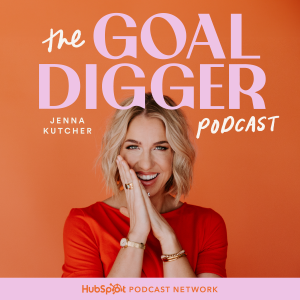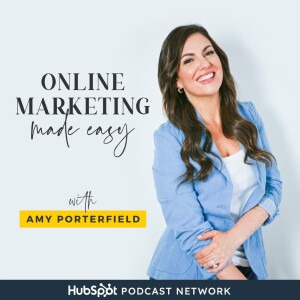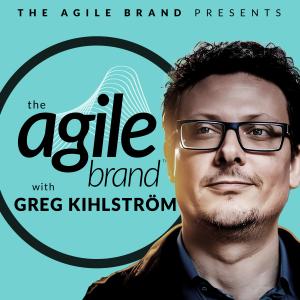

Episode List

Why Accessibility Is Becoming a Nonnegotiable in B2B Marketing
In this episode of Content Logistics, host Baylee Gunnell sits down with Mike Barton, Vice President of Corporate Communications and Content Marketing at AudioEye. Together, they explore what digital accessibility means for B2B marketers and why it matters far beyond compliance. Mike explains that making websites and digital experiences accessible isn’t just about following the rules—it’s about making content usable for everyone, which improves the experience for every visitor.Mike shares how simple changes, like using plain language and clear navigation, benefit all users and can even become a competitive advantage. He discusses how accessible sites drive better SEO, help close enterprise deals, and build loyalty among customers who value an easy, frictionless experience. Mike also points out that the business case for accessibility is strong, especially as more organizations include accessibility in their buying criteria.The conversation ends with practical steps for getting started, from scanning your site for accessibility issues to including people with disabilities in user testing. Mike reminds listeners that accessibility is a journey, not a checkbox. By taking small steps and building best practices into your process, you open your digital doors to more people and set your brand apart.

Using Content Pillars to Build Your Personal Brand
In this episode of Content Logistics, host Baylee Gunnell sits down with Nicole Ramirez, Growth Marketing Consultant at NR Digital Consulting. They explore the real work behind personal branding and why marketers can’t afford to treat it as optional. Nicole shares clear advice on taking control of your online presence, starting with a simple audit of your profiles and content. She explains why your brand exists whether you manage it or not, and how intentional choices shape what people see.Nicole breaks down her process for building strong content pillars, showing why focus and consistency matter more than posting every day. She offers practical tips on finding your voice, sharing only the parts of yourself you want others to see, and keeping your approach sustainable. Nicole also covers the value of starting small, engaging as a contributor, and learning from what does or doesn’t resonate.Throughout the conversation, Nicole highlights the importance of authenticity and staying flexible. She shows how small experiments, clear visuals, and a balanced cadence help marketers grow their presence without burning out. The episode closes with a candid take on “sympathy marketing” and the pitfalls to avoid as you build trust with your audience.

Building a Repeatable Process for Expert Led Content
In this episode of Content Logistics, host Baylee Gunnell sits down with Kristen Sweeney, CEO at Every Little Word. They explore the nuts and bolts of building expert-led content programs inside B2B organizations. Kristen breaks down how tapping into internal expertise creates stronger content, builds trust, and avoids the pitfalls of generic thought leadership.Kristen shares why most content programs stall before they start: too many stakeholders, unclear processes, and a lack of buy-in from non-marketing teams. She explains how to secure early support, set clear expectations, and keep content moving by focusing on preparation and communication. Kristen also walks through her practical workflow—from choosing the right experts, prepping for interviews, and drawing out unique insights, to streamlining review cycles and approvals.Throughout the conversation, Kristen shows that great content doesn’t happen by accident. It takes planning, clear roles, and a willingness to respect both the experts and the audience. For small, scrappy marketing teams, her advice offers a roadmap to cut through complexity and deliver content that feels both credible and fresh.

3-Step Framework to Stop the Scroll
In this episode of Content Logistics, host Baylee Gunnell sits down with Jimi Gibson, Vice President of Brand Communication at Thrive Internet Marketing. They explore how marketers can break through content overload and capture real attention, even as artificial intelligence fuels a constant flood of words online.Jimi shares his “stop the scroll” framework, rooted in the psychology of magic and storytelling. He outlines the importance of building a genuine connection, sparking curiosity, and guiding audiences to a satisfying conclusion. By walking Baylee through a storytelling exercise, Jimi shows how each step triggers a powerful response in the brain. He stresses that effective hooks and messaging must reflect real audience pains and desires—not generic copy generated by machines.The conversation digs into actionable tactics, including the five-finger approach to content creation and the value of speaking directly to one audience at a time. Jimi encourages marketers to test, refine, and connect on a human level to earn trust and drive action.

The Business Case for Giving Away Your “Secret Sauce”
In this episode of Content Logistics, host Baylee Gunnel sits down with David Ebner, President and Founder at Content Workshop. They explore the tension small B2B marketing teams face when deciding whether to gate their content or give away their “secret sauce” for free. David unpacks why trust, not tactics, is at the heart of effective content and how building that trust takes time and a willingness to share real knowledge without always asking for something in return.David explains that people pay for expertise in action—not just for information. He encourages teams to focus less on guarding processes and more on helping their audience solve problems. He shares stories about the long-term value of generosity and how “corporate philanthropy” in content can deliver real business results, even when the payoff isn’t immediate.Throughout the conversation, David stresses the need to align content strategy with audience needs, measure success by engagement over vanity metrics, and remember that great marketing serves people first.
You may also like
Create Your Podcast In Minutes
- Full-featured podcast site
- Unlimited storage and bandwidth
- Comprehensive podcast stats
- Distribute to Apple Podcasts, Spotify, and more
- Make money with your podcast












